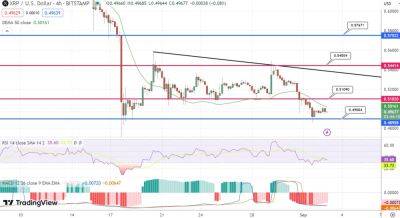Ethereum staking services agree to 22% limit of all validators
At least five Ethereum liquid staking providers have either imposed or are working to impose a self-limit rule in which they promise not to own more than 22% of the Ethereum staking market — seen as a move to ensure the Ethereum network remains decentralized.
Among the Ethereum staking providers either already committed or are working to commit to the self-limit rule include Rocket Pool, StakeWise, Stader Labs and Diva Staking, according to Ethereum core developer Superphiz.
Puffer Finance, another liquid staking service, also announced its commitment to the self-limit.
These providers are committed (or are in the process of committing) to self-limit to <22% of Ethereum validators. This is how our chain will be successful: Coordination above greed. Cooperation instead of winner-take-all.@Rocket_Pool @stakewise_io @staderlabs @divastaking
The proposal presumably aims to address concerns of Ethereum staking becoming increasingly centralized.
As to why the self-limit was proposed at 22%, Superphiz explained that because 66% of validators need to agree on the state of Ethereum, setting the limit below 22% means at least four major entities must collude in order for the chain to reach finalization.
Finality is the point where transactions on a blockchain are considered immutable, supposedly ensuring that transactions within a block cannot be altered.
The idea was proposed by Superphiz in May 2022 when he questioned whether a staking pool would be willing to put the health of the chain before its own profits.
Interestingly, the largest Ethereum liquid staking provider, Lido Finance, voted by a 99.81% majority not to self-limit back in June.
“They have expressed an intention to control the majority of validators on the beacon
Read more on cointelegraph.com






















